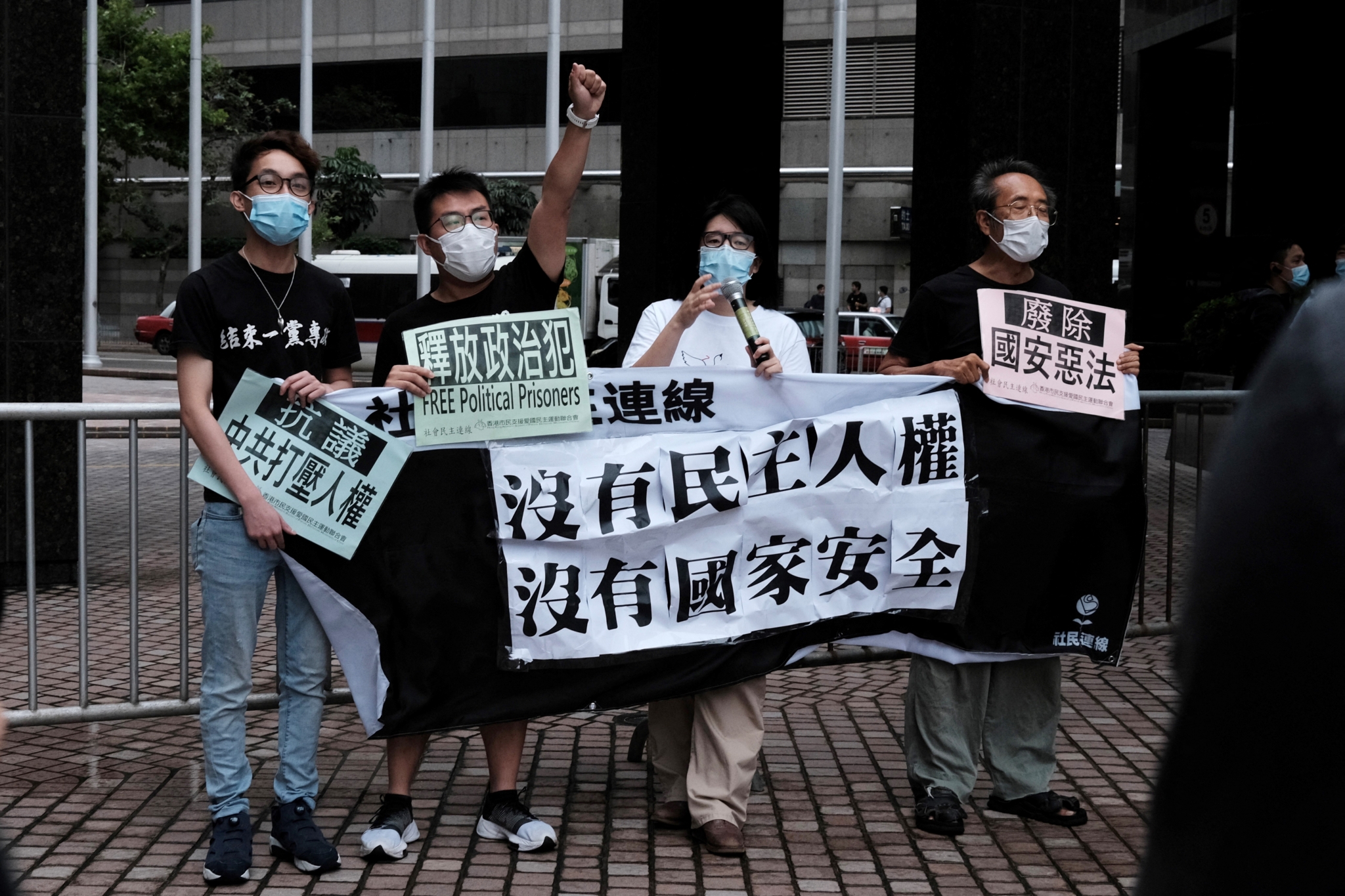Responding to the sentencing of 10 Hong Kong pro-democracy activists to between eight and 18 months in prison for taking part in two “unauthorized” protests in August 2019, Amnesty International’s Asia-Pacific Regional Director Yamini Mishra said:
“The wrongful prosecution, conviction and sentencing of these 10 activists underlines the Hong Kong government’s intention to eliminate all political opposition in the city.
“Having arrested the majority of Hong Kong’s most prominent dissidents using the repressive national security law, the authorities are now mopping up remaining peaceful critics under the pretext of bogus charges related to the 2019 protests.
“These convictions are a violation of international law, which states that participating in and organizing peaceful assemblies does not require prior permission by the state. Nor does failure to notify the authorities about an assembly make it unlawful to take part in it. The prosecution’s case against these activists is simply not tenable.
“The Hong Kong authorities must stop bringing unwarranted criminal charges against those who have peacefully exercise their rights to freedom of expression and assembly. All those sentenced today should be immediately released and their record expunged.”
Background
Ten pro-democracy activists were sentenced today to between eight and 18 months in prison for organizing and participating in two “unauthorized” protests on 18 and 31 August 2019.
They were part of a series of mass protests triggered by the so-called Extradition Bill proposed early that year. As protests against the bill became more frequent and larger in 2019, the Hong Kong police adopted a tougher approach to restricting public assemblies, ranging from revoking “notices of no objection” for marches to banning protests outright on the grounds of “public security concerns”.
An estimated 1.7 million people took part in a peaceful march on 18 August 2019, defying police orders to confine the gathering to a stationary rally in Victoria Park near the city centre.
Hundreds of thousands of people again took to the streets on 31 August 2019, defying a total ban by the police and despite organizers calling off the protest. The latter demonstration was largely peaceful but ended in clashes between police and protesters, some of whom threw bricks and petrol bombs.
Three of those sentenced today, newspaper owner Jimmy Lai and former lawmakers Au Nok-Hin and Leung Kwok-hung, are also facing prosecution under Hong Kong’s national security law, which was enacted on 30 June 2020 and has since been used to systematically crack down on human rights. Lai was in fact handed an additional charge under the national security law during today’s hearing.
The others sentenced were former legislators and activists Martin Lee, Lee Cheuk-yan, Leung Yiu-chung, Margaret Ng, Cyd Ho Sau-lan, Albert Ho Chun-yan and Yeung Sum.
The sentences for Martin Lee, Margaret Ng and Albert Ho were suspended for 24 months, Leung Yiu-chung’s sentence was suspended for 12 months and Yeung Sum’s was suspended for eight months.
The prosecutions were based on the Public Order Ordinance, the provisions and application of which fail to meet international human rights law and standards on the right to peaceful assembly. The UN Human Rights Committee has repeatedly expressed concern that the application of “unlawful assembly” against Hong Kong protesters risks violating their human rights.
According to Articles 14–15 of Hong Kong’s Public Order Ordinance, those wishing to organize a protest are required to obtain a “notice of no objection” from the police before an assembly may proceed. Police have the power to prohibit public gatherings or impose requirements or conditions on public gatherings where the police “reasonably consider it necessary in the interest of national security or public safety, public order or for the protection of the rights and freedom of others”.
International human rights law stipulates that anyone who wishes to hold a demonstration should be able to do so without requiring permission or authorization from the authorities.
Amnesty International has long called for relevant provisions of the Public Order Ordinance to be amended to bring it in line with Hong Kong’s obligations under international human rights law.






















